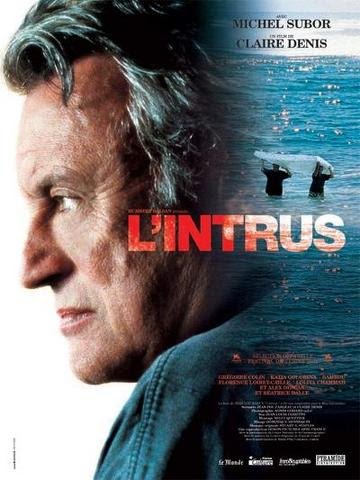I think it's interesting that for the last film she shot completely on film, Denis returns to Africa (non-specific country), where she spent her youth and where her career as a filmmaker/director began in full. Decades after the look at colonial Cameroon in Chocolat, we see what has become of the continent after the white man's influence has begun to slip, per se. A legacy filled with the torture, rape, and destruction of an entire people(s) and their homeland. When the revolution starts, your money can only save you for so long.
The way Denis has always treated class and race has always been even-handed and even-keeled. Her protagonists are those who strive for betterment, and often monetary means are required to escape whatever strife they happen to have found themselves within. Here, perhaps the first time in her filmography, she presents a protagonist who's troubles cannot be solved in this way. Due to said protagonist being Isabelle Huppert, a very white woman, and one for whom could be assumed at the top of the hierarchical chain of command, we must view this change in class perspective in context of her entire body of work.
This is most definitely a piece where the bourgeois are under siege. The pillaging of a land and enslavement of its people for generations has come back to haunt the legacy children of these captors. But what does it mean to frame this narrative through the eyes, mainly, of an upper-class white family? Jon makes a good point in his review by saying this is ultimately a piece that will mostly play to the type of people it's criticizing (and I do think that Denis' sympathies are more in tune with the African revolutionaries than the plantation owners here) and so it's worth pondering what the ultimate goal is in presenting it through this perspective. Clearly having a presence of a star like Huppert will draw in more eyes than otherwise, though this had never seemed to be much of a priority of Denis' up to this point (though what do I know about the "stars" of France). But what good does showing the film through their eyes ultimately do.
I think, perhaps, that it's less trying to gain sympathy from its audience and perhaps forcing us to grapple with the legacy of colonization as a whole. The older generation (Huppert and Lambert, and to a certain extent Subor) appear to exhibit less entitlement over the land and its people than the younger generation (Duvauchelle) does. This older group is more in touch, in a sense, with their foreign-ness in this land, while the younger, presumably having grown up in this country and with the amount of wealth always present, views themselves as the better. I think it's telling that after being threatened by child soldiers, Duvauchelle's character returns to his family's plantation and shaves his head, leaving home with a shotgun. His tattoos reveal some seeming awareness of "black culture" and there is some form of adopting/appropriation. His boredom that his entitlement has fostered ultimately leading him towards awareness at the hands of children.
It's not an act of pacification on the elders of this class, but attempting to confront them with the results of their imperial drive. They may see their racism as relatively banal or even inert, but it does still exist. Not presenting for all to see the disdain or annoyance one has for those of a different race, or class, is obvious in the interactions throughout. A clear level of entitlement is present in all of Huppert's interactions with the coffee-pickers and revolutionaries. Though perhaps this is all just a horror story to those who watch this film. A view into a world they would prefer never to have to acknowledge.























